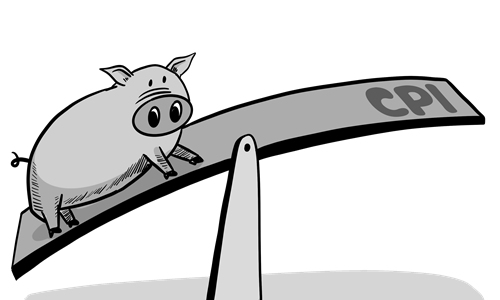HOME >> SOURCE
China does not need to rely on the US to ensure domestic pork supply
By Hu Weijia Source:Global Times Published: 2019/12/10 20:21:49

Illustration: Luo Xuan/GT
Could US agricultural imports curb inflation in China? Probably not. China's shortage of pigs is a fact, which means the country's pork imports will expand further. But Brazil, instead of the US, is likely to become the biggest beneficiary of China's expansion of pork imports.The consumer price index (CPI), a main gauge of inflation, rose by 4.5 percent year-on-year in November, beating market expectations, data from the National Bureau of Statistics (NBS) showed on Tuesday. The spike in November's consumer inflation was mainly attributed to rising food prices, particularly pork which is a staple of the Chinese diet.
Analysts estimate that holiday-season spending at the end of the year may push the demand for pork up further and pile more pressure on China to import US farm goods. However, those analysts are ignoring a fact: the US is not the only source of China's pork imports. South American and European countries are likely to gain more from China's increasing pork imports.
Some statistics show that Germany was the largest source of China's pork imports in 2018, followed by Spain, Canada, Brazil and the US. That ranking is expected to change significantly this year. Brazil's pork exports to China have soared 40 percent since the beginning of the year, according to Marketwatch in November. US pork exporters are expected to benefit less from China's expansion of its pork imports, partly due to the trade war between the two economies.
US pork exporters seem to have missed their opportunity to increase their presence in the Chinese market. Soaring pork prices have gradually slowed in recent weeks. From November 25 to December 1, the wholesale price of pork dropped 3 percent from the previous week, according to the Ministry of Commerce. The current situation is not as severe as it was in the beginning of November. China's pork import volume will continue to grow in the coming months, though its pace of growth may slow down.
China has stepped up efforts to stabilize hog production and ensure the country's pork supply. Data from the Ministry of Commerce suggests such measures have begun to take effect. While China is reasonably seeking to boost its pork imports, the country will strive to expand the domestic supply to meet demand and curb a further increase in pork prices.
The author is a reporter with the Global Times. bizopinion@globaltimes.com.cn
Posted in: INSIGHT